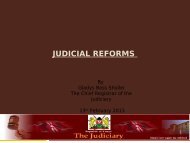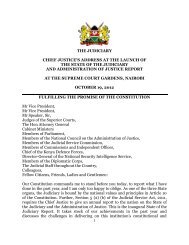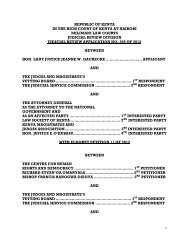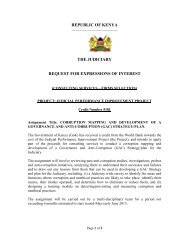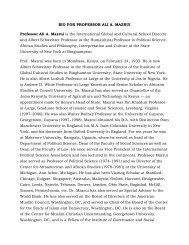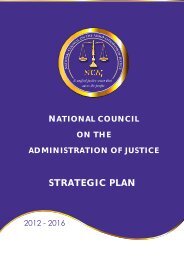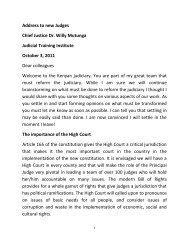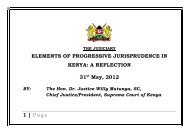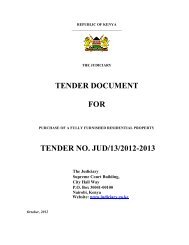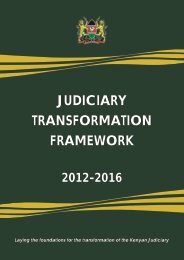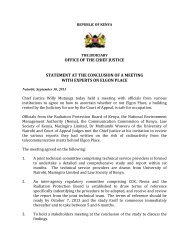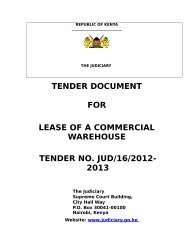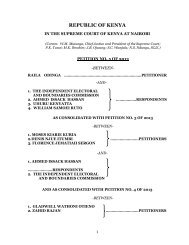REPUBLIC OF KENYA - The Judiciary
REPUBLIC OF KENYA - The Judiciary
REPUBLIC OF KENYA - The Judiciary
You also want an ePaper? Increase the reach of your titles
YUMPU automatically turns print PDFs into web optimized ePapers that Google loves.
principle, or to be out of step with some broad trend in the judicial<br />
process; the test of per incuriam is a strict one – the relevant decision<br />
having not taken into account some specific applicable instrument,<br />
rule or authority. This position is illustrated by the English House of<br />
Lords judgment in Cassell & Company Limited v. Broome [1972] 2<br />
WLR 645, in which the Court of Appeal’s perception of Rookes v.<br />
Barnard [1964] AC 1129 as being per incuriam was the subject. <strong>The</strong><br />
relevant passage (per Lord Reid) reads:<br />
“I am driven to the conclusion that when the Court of<br />
Appeal described the decision in Rookes v. Barnard as<br />
decided per incuriam, or “unworkable,” they really only<br />
meant that they did not agree with it….<br />
“When this House undertakes a careful review of the<br />
law it is not to be described as acting per incuriam or ultra<br />
vires if it identifies and expounds principles not previously<br />
apparent to the counsel who addressed it or to the judges<br />
and text-book writers whose divergent or confusing<br />
expressions led to the necessity for the investigation.”<br />
[52] <strong>The</strong> House of Lords, in R v. Kansal [2001] UKHL 62, had to<br />
decide on an application to review its previous decision, and overturn<br />
the holding in R v. Lambert [2002] 1 LRC 584. In the Lambert Case<br />
29



